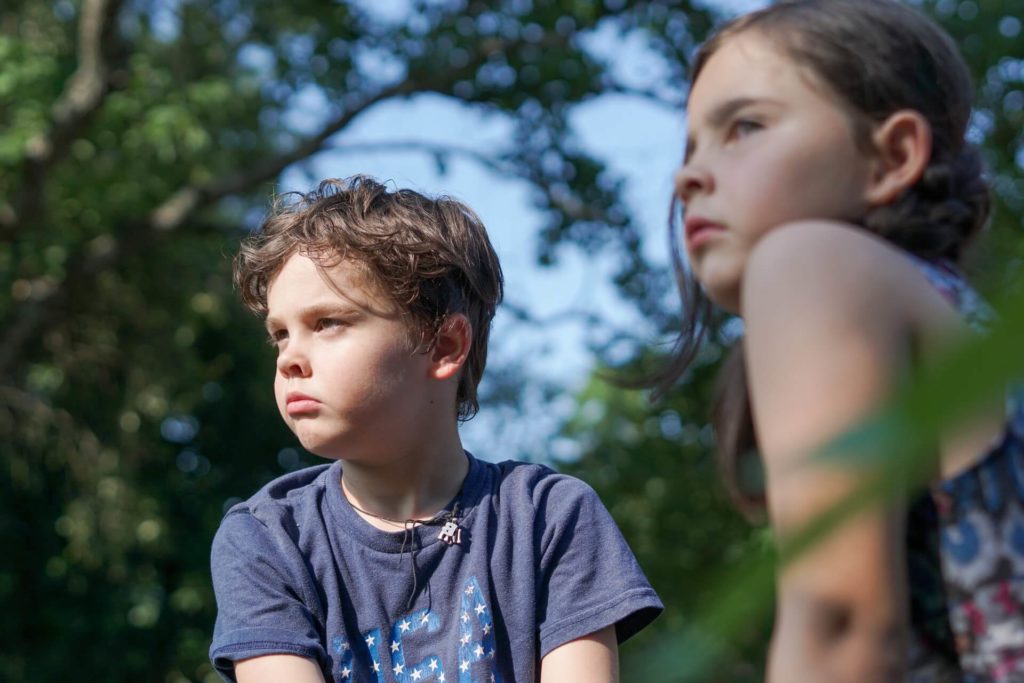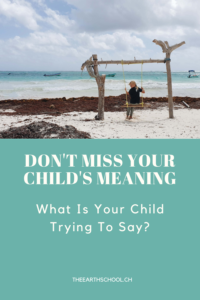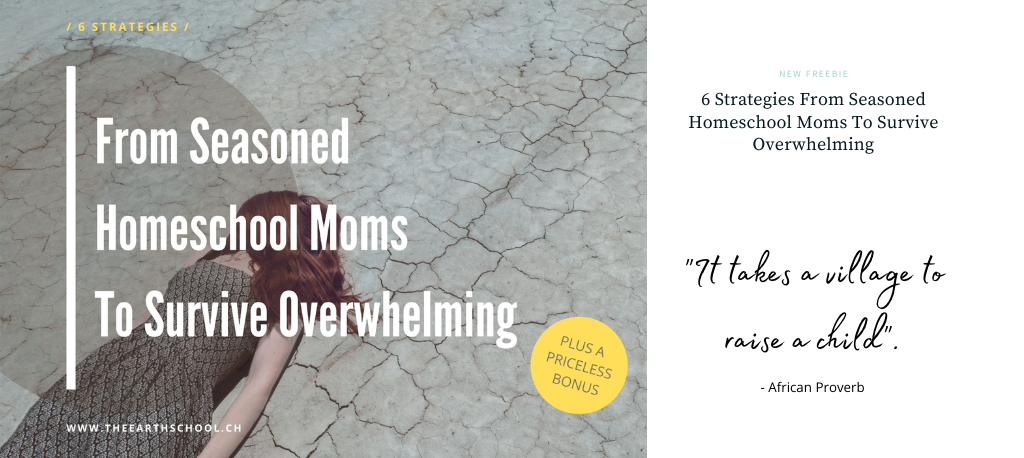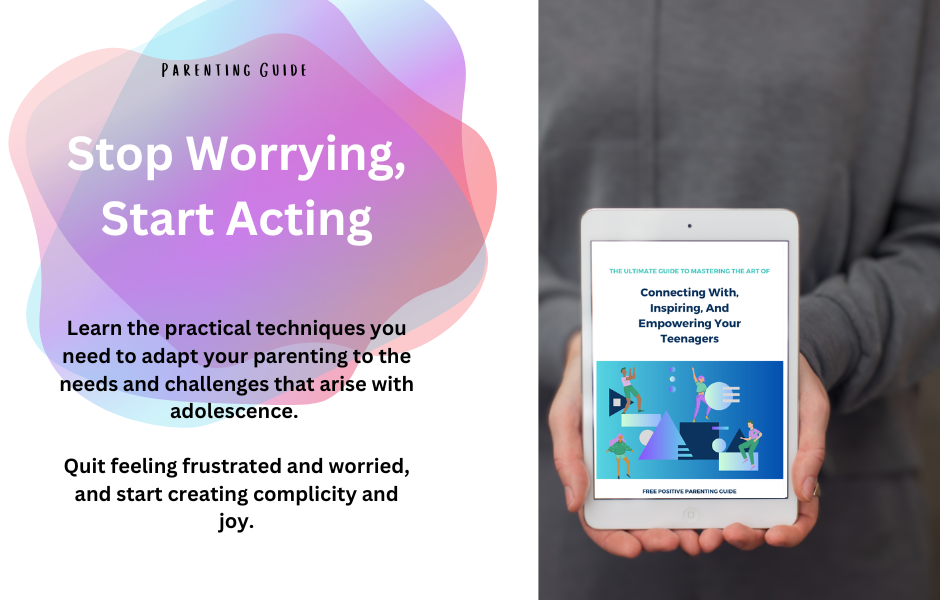
#37 What Is Your Child Trying To Say? Don’t Miss Out Essential Messages
Would you rather listen to this post? No problem, just click here to get it!
The other day I saw an advertisement about how to translate what your dog is telling you, and I thought, I don’t have a dog, but I could use a translater for children!
I remember vividly, as a child, trying to say something to the adults around me and nobody understanding the message, when I thought it was so clear. It felt so disappointing and made me feel lonely.
As a mother, I am careful to be open to my children and to be attentive to their messages, but adults and children’s minds work so differently, what if I missed something paramount?
Don’t misunderstand this article either! Download the PDF to give you time to reflect!
Don’t Miss Out Essential Messages
I am 10 years old and today is a special day, my birthday! And I get to chose a new bike! My grandpa takes me to the shop, I can choose between a pink second-hand bike or a brand new mountain bike. My grandpa tells me I’d be better with the pink city bike, but I am a tomboy and the mountain bike looks amazing. Though I don’t want to oppose him so I try to make him understand in other ways. He doesn’t listen, I get the pink bike and I’m so sad.
I am 5 years old. At my mother’s job, a teenager tried to abuse me and I don’t know what to do with that. I try to tell my mom by telling her that I don’t want to go to her job anymore, that this boy is mean. She doesn’t get the message. I have to go back terrified and ashamed.
So many of those examples fill my memories and surely yours. How many times did you feel let down by your parents? How many times did you try to say something and nobody heard?
Because you were too ashamed or worried about the consequences, you tried to send messages so they would guess, but they didn’t. Because they had their own lives, maybe because they thoughts children’s problems are little problems, maybe because you were too subtle about it, maybe because they didn’t notice there was a message, who knows?
Children’s problems are not small for them. What we would see as a petty fight between cousins can be a big deal. Plus, our world offers plenty of opportunities to face problems. Here are some of the problems children face often:
- Social media
- Distorted body image
- Violence (in the news, in the world,…)
- Mental health issues (in their entourage)
- Cultural contradictions in the family
- Gender differences
- Adults expectations
- Their future
- Expressing individuality
- Self-confidence
Children often don’t have the words to express themselves or don’t use the ones we would understand. But there is a channel we’re all familiar with and where we can meet: emotions.
Emotions convey messages, they hold important information, and they have the tremendous advantage to be the same for adults and children!

What Is Your Child Trying To Say?
Before we discuss what messages are hidden behind emotions encountered daily, let’s consider this: if you’re the only one who learns about communicating better, does it help your child?
When coaching, here is one of the first question I ask moms to practice:
Is what you are doing helping your child’s autonomy or making them more dependent?
We are raising children so that one day they won’t need us anymore. We are not raising them to feed our need for usefulness and recognition.
When children learn about their own emotions and needs, when they learn how to voice them and share them with you, they become more autonomous.
These skills will stay with them as they have grown up and you will enjoy years of easier communication. As for them, they will be able to communicate better not only with you but with others people too.
I don’t know you, but I am always worried when my children go to someone’s place or spend time with other people. I imagine situations where they would have to say that something’s wrong but don’t dare to express it or don’t know how to.
Every time your children will succeed in spotting and expressing their emotions and needs at home, you will feel more confident about their ability to do it with others too.
Child’s World VS Adult’s World
How come we don’t always understand our children? Aren’t we the ones who know them best? How many parents have been shocked by something their children kept from them or by something they missed?
A child’s brain is developing, hence, it doesn’t have all the abilities we do as adults. It is not about what children are willing to do, but about what they are able to do.
[Tweet “It is not about what #children are willing to do, but about what they are #able to do.”]
Children have big feelings they don’t know what to do with. And as parents, we sometimes lack the empathy and patience children would need to process them.
What is it like to be a child with big feelings? Imagine being in the sea and they are waves coming in and coming in, you’re trying to swim and make sense of what’s happening to find a way out of it, and that’s when your husband asks you to hurry up because it’s time to go!
Have you noticed we are less patient with children than we are with adults? When your children spill their cereals and milk, you get mad, but when it’s your husband, would you even consider yelling at him that he’s clumsy?
If you want to be able to hear your children’s messages, and if you want to be able to teach them how to voice their emotions and needs properly, you need to take the time to do so. And why not considering learning to accept your own feelings to become a role model?
Next time you’re about to lose patience, ask yourself: Does what I am about to say/do comes from a place of love?
There are no seven wonders of the world in the eyes of a child. There are seven million. – Walt Streightiff

What Is Your Child Trying To Say? Read Their Emotions
Children might have something to communicate with and not even knowing they do. Or being willing to but afraid to do so (fear of consequences, fear to hurt the relationship, fear not to be loved anymore,…).
There is one thing that doesn’t lie: emotions. Because emotions are deeper than the conscious mind. Of course, actors, con artists and others can fake emotions or hide the ones they feel but children are not enough in control of their emotions to do that.
Side note: you might want to develop your children’s emotional skills before their teenage years and give them a good start.
What Is Your Child’s Fear Saying?
Every day, there are many new things in a child’s life, and several of them are scary. Not every child is ready to face a challenge at the same moment or in the same way.
We ask a lot of children and that is great because with new experiences they can grow their knowledge of the world and themselves, but we cannot judge what is scary or not.
Can you remember something that was frightening for you as a child but now seems meaningless?
It is the Summer of 1994, we were on a holiday in Italy and their team is a finalist in the World Cup. The hotel is shiny white and the pool is warm. My best friend is here too which makes it one of my best holidays so far. The only rub, I am terrified to try and do a real dive. I am 11, all the other children can do it and the whole hotel is supporting and cheering me, which makes it a thousand times worse. I still remember the feeling of fear and of cowardice. Because that’s how people thought of me, a coward who would not dare do a little dive.
When your child is afraid of something, they usually only need some more time. The motivation to do something has to come from within, and remember that fear is natural.
Fear tells us that there is a danger. That’s a very useful emotion. The fact that you might not see the danger your child sees, doesn’t mean it doesn’t exist for them.
So what is your child’s fear saying? That there is a danger in their opinion, that they need time and support to overcome it and become more self-confident as a reward.
Children have many fears during childhood, and you can see them as a reflection of their development. You will notice that some fears appear while others go with time.
Don’t want to forget those essentials? Grab your complimentary cheat sheet
What Is Your Child’s Anger Saying?
Anger is the healthy and normal answer to frustration. If your child never gets angry when you say « no », then they might be in denial of their desires and needs.
Assertiveness is precious. It will allow the grown-up child to know what they want or not, what is good or bad, and to make choices for themselves. Your child’s anger is saying that one of their need isn’t answered.
Every need cannot be satisfied, but every need can be heard and acknowledged. – B. Goin-Zeiter
Anger has another purpose, fighting what feels unfair. It serves our identity. Let’s be honest, as a mother, we cannot be fair all the time and our children have plenty of opportunities to experiment injustice. They fight and you punish only one of them? You yell for a broken toy even though it was an accident? You promised an ice cream but didn’t have time to go to the grocery store? In those situations, children’s anger reflects an injustice. And we usually don’t hear it because we feel guilty.
Violence and anger are two different things though. While anger is an emotion that should be accepted by the parents, violence is the negative consequence of unheard anger. While anger is about oneself, violence means making the other one responsible. Have you ever heard your child says: « it’s your fault! », « you’re mean! », « it’s because of you! »?
The next time you witness your child’s violence and aggressivity, try to spot at what point you didn’t hear their (legitimate) anger and give them a chance to be heard.

What Is Your Child’s Sadness Saying?
Sadness is the emotion of loss. And tears are the way our body expels the toxins of grief.
Have you noticed how it is hard for parents to stand their children’s sadness and tears? How we usually try to stop them « stop crying now, you’re fine », « that’s enough now », « quit the drama »,… or comfort them “it will pass”, “come on now”, “a hug and it’s gone”?
The thing is, we are very sensitive to our children’s emotions and we feel powerless to help. We don’t like this feeling, so we ask them to stop. We put our needs before theirs.
To stand our children’s sadness, it helps to understand it. There can be many kinds of loss, for children are attached to objects as well as people, animals, places,… It might be hard for adults to understand, but for a child, leaving a campsite after a holiday can be heartbreaking.
Children aren’t able to understand the irreversibility of death before 9 years old, but they still feel the sadness of the loss. They still miss the people they lose. And the best strategy when there is a loss is always to speak the truth. The truth invites open discussions. While lies and half-truth give the children room to use their imagination and come up with terrible ideas, like being responsible somehow (remember that young children are egocentric).
So, what is your child’s sadness saying? It is saying that they are processing a loss, and no matter what the loss is, they will process it faster and better if you accept their feelings.
What can be a loss? The loss of someone who passed away, but also the loss of someone who’s moving. The loss of an animal but also the loss of an object (small as a toy, big as a house). The loss of an ideal (mom is not always nice, daddy cannot stay at home all day, some people are mean).
Sadness also helps to accept defeat. It is a healthy step and again, do no try to comfort your child « you’ll win next time », « it will pass »,… but accompany them in their process « it is hard for you », « I know it’s hard », « you are really sad ».
Print the Cheat Sheet and don’t miss out on important messages
What Is Your Child Trying To Say? Don’t Miss Out Essential Messages
Emotions tell us that something is happening in our children’s life. The fact that we don’t understand what is happening or why this event creates such an intense reaction doesn’t make it meaningless.
Can you think of a moment when you were very upset but not your husband? We all react differently to the same situation.
Children’s circumstances are even more special as:
- There are many things they don’t understand.
- They don’t have the maturity to manage their emotions.
- Their development process makes them go through tough stages and realizations.


Don’t let the inspiration fades and take action right away:
1. Download our cheat-sheet, it’s on the house. Decide on one action you will implement from today and write it down
3. Share this article with a friend who could benefit from it
4. Join us on Instagram for more great content
I wish you all the best with your kids, always remember that we all do the best we can at a given moment, so never judge yourself harshly. Be confident and listen to your intuition. If what you do comes from a place of love, then you’re on the right path.
See you next week for another exciting article!

Do you want more?
Don’t Forget To Join Our Community To Get Inspiration And Tips Straight in Your Mailbox
I wish you all the best with your kids. Always remember — we’re all doing the best we can in any given moment, so try not to judge yourself too harshly. Be confident and listen to your intuition. If what you do comes from a place of love, then you’re already on the right path.

If this post resonated with you — if you’ve ever walked ten paces behind your child, wondering if you’re ruining everything — come join us on Instagram.
It’s where I share reminders, reflections, and the odd parenting confession… for mums figuring it out one heart-twinge at a time.










